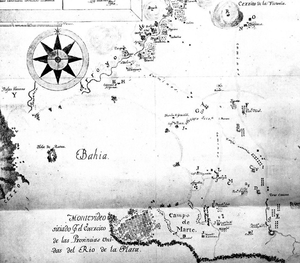Siege of Montevideo (1811)

The First Siege of Montevideo (Spanish: Primer Sitio de Montevideo) took place between May and October 1811, when the troops of the United Provinces of the River Plate unsuccessfully besieged the city of Montevideo, still held by Spanish loyalists.[1]
In 1810, the May Revolution had forced the Spanish to abandon Buenos Aires, but they held on to the Banda Oriental (present-day Uruguay), as Francisco Javier de Elío moved the headquarters of his Viceroyalty of the Río de la Plata to Montevideo. In May 1811, the revolutionary José Gervasio Artigas defeated the Spanish in the Banda Oriental at the Battle of Las Piedras. After the battle, the Royalists only remained in control of two cities: Colonia del Sacramento and Montevideo, which was besieged by Artigas and José Rondeau.
Montevideo had formidable fortifications and the Spanish controlled the Río de la Plata river. When a Portuguese relief army entered the Banda Oriental at the request of Spain, Buenos Aires signed a truce with Elío, recognizing him as the ruler of the Banda Oriental. Artigas felt the truce to be treasonous. He broke relations with Buenos Aires, and lifted the blockade over Montevideo in October 1811.
The city would finally be conquered by Artigas and Rondeau in 1814 after the Siege of Montevideo (1812-1814).
See also
- Battle of Las Piedras (1811)
- Dissolution of the Viceroyalty of the Río de la Plata
- Francisco Javier de Elío
References
- ↑ "First Siege of Montevideo". Uruguayan Military. Retrieved 22 April 2013. (Spanish)